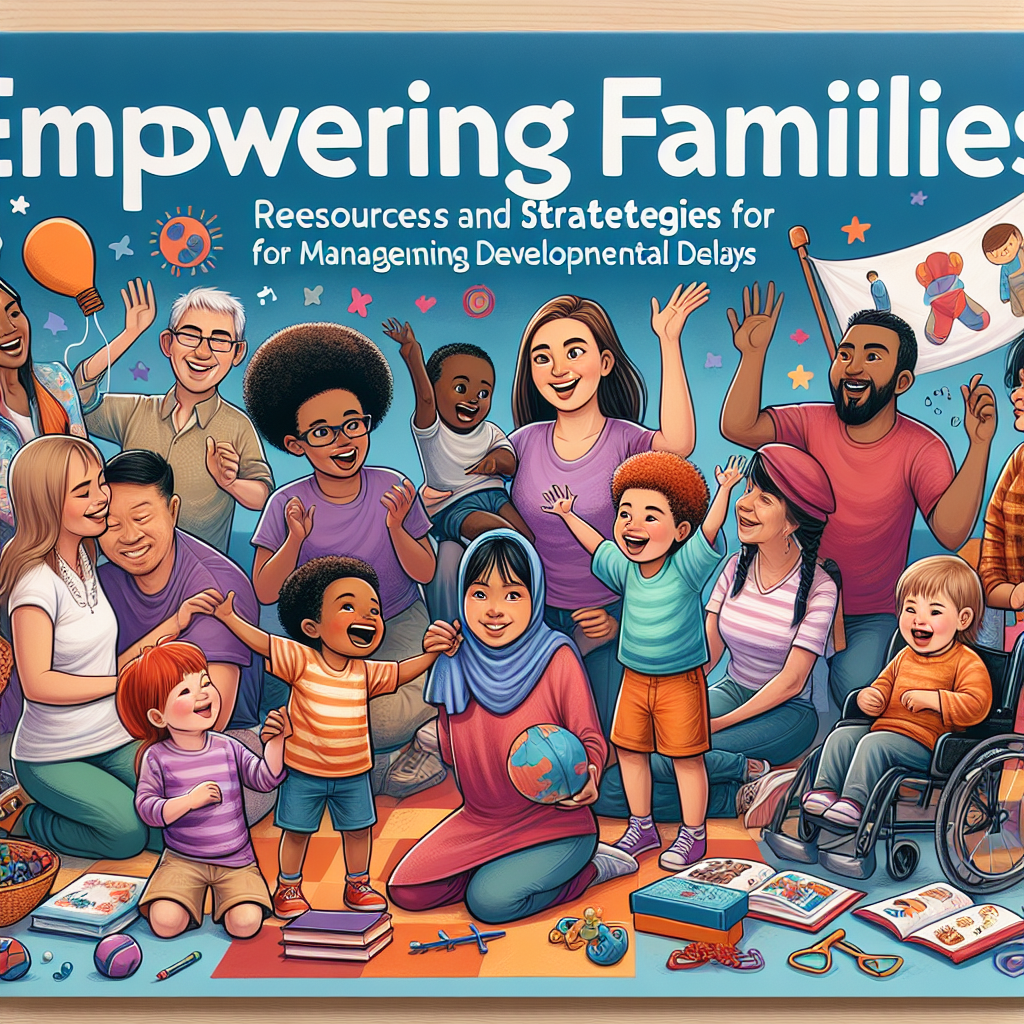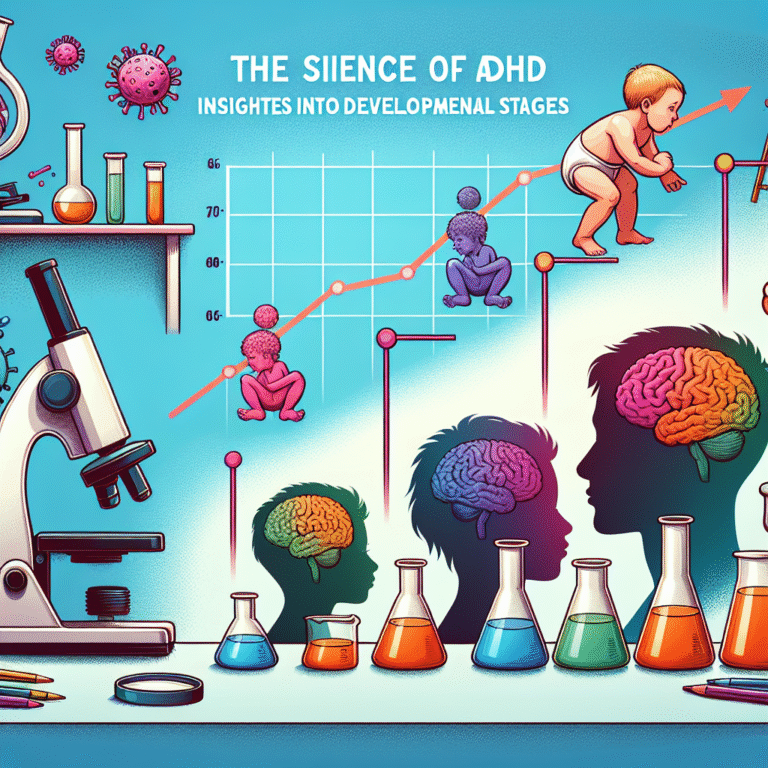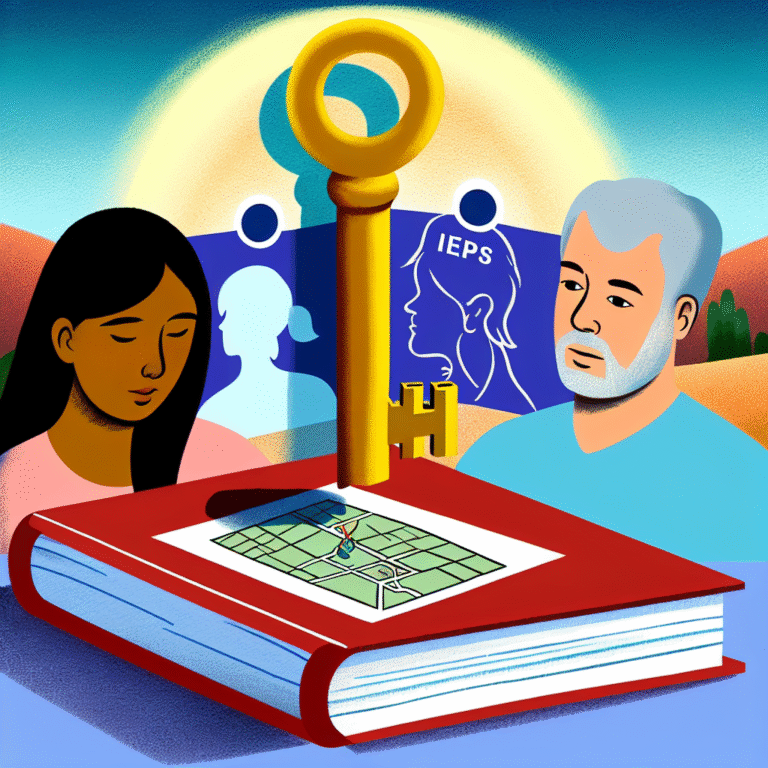
Introduction
In today’s world, understanding and managing developmental delays in children is more important than ever. For families navigating this challenging landscape, the tools, strategies, and resources available can truly make a difference. Empowering Families: Resources and Strategies for Managing Developmental Delays provides a holistic framework for addressing these concerns, illustrating how proactive measures, informed choices, and community support can lead to improved outcomes.
Whether you’re a parent, caregiver, or educator, grasping these concepts will not only enrich your understanding but also empower you to advocate effectively for the children in your care. Let’s embark on this enlightening journey together!
The Landscape of Developmental Delays
Understanding Developmental Delays
Developmental delays refer to a significant lag in a child’s physical, cognitive, behavioral, emotional, or social skills compared to their peers. These delays can stem from various factors, such as genetic conditions, environmental influences, or educational challenges.
Types of Developmental Delays
- Cognitive Delays: Difficulty in thinking, learning, or problem-solving.
- Speech and Language Delays: Challenges in understanding or using language effectively.
- Motor Skills Delays: Issues with movement, coordination, and handling objects.
- Social and Emotional Delays: Difficulty in interacting with others and regulating emotions.
Importance of Early Intervention
Early intervention is crucial. Research shows that children who receive support early on display significant improvements in various areas of development. The earlier a family acts, the more tools and strategies they can employ to foster growth.
Empowering Families: Key Resources
Educational Programs and Therapies
Families can tap into numerous educational programs and therapies tailored to children with developmental delays. Here’s a list of effective interventions:
| Resource Type | Description |
|---|---|
| Speech Therapy | Helps improve communication skills through targeted exercises. |
| Occupational Therapy | Focuses on building daily living skills and sensory integration. |
| Physical Therapy | Aimed at improving mobility and motor skills. |
| Special Education Services | Provides individualized education plans (IEPs) and tailored support in schools. |
Case Study: The Thompson Family
The Thompsons faced challenges when their son was diagnosed with a speech delay at age three. By engaging a speech therapist as part of their early intervention strategy, they observed remarkable progress within months. The family also attended workshops to better understand communication techniques, illustrating the direct benefits of involving professionals and learning from available resources.
Analysis of the Thompson Family’s Journey
This case exemplifies how embracing available resources can transform a family’s experience. The proactive steps taken not only addressed the delay but also gave the family confidence in their parenting abilities.
Strategies for Parents and Caregivers
Building a Support Network
Creating a network of support is vital. Connect with local groups, online forums, and community resources. Local organizations often host workshops, events, and one-on-one sessions to aid families.
Case Study: Community Coalition
A community in Ohio formed a coalition that pooled resources for families dealing with developmental delays. By organizing informational sessions and facilitating connections between families, they empowered many to share strategies and successes.
Home Strategies for Daily Life
- Set a Routine: Consistency helps children thrive. Establish a daily schedule with regular activities.
- Use Visual Aids: Tools like charts and schedules can aid communication and understanding.
- Encourage Play: Play is a powerful learning tool. Engage in games and activities that promote skills relevant to the child’s developmental needs.
The Role of Schools and Educators
Collaboration with Educators
Engaging with teachers and school administrators is vital. Understand your child’s rights and ensure they receive appropriate accommodations and support.
Case Study: The Martinez Family
The Martinez family’s insightful communication with teachers resulted in a tailored IEP for their daughter, who faced social and emotional delays. Regular meetings and open communication fostered a supportive educational environment, showcasing the importance of collaborative strategies.
Tools and Resources for Educators
- Individualized Education Programs (IEPs): Tailored plans that outline specific learning goals and accommodations.
- Professional Development Resources: Training programs that equip educators with strategies to support diverse learners effectively.
Strategies for Advocacy and Awareness
Educating Yourself and Others
Educating yourself about developmental delays and the rights of children can empower you to advocate more effectively. Host workshops, create awareness campaigns, or utilize social media platforms to spread knowledge.
Engaging with Policymakers
Understanding local policies and advocating for necessary changes can significantly impact resources available for families. Encourage community discussions and collaborate with local agencies to bring attention to developmental delays.
Emotional Well-Being of Families
Importance of Self-Care for Parents
Managing developmental delays can be taxing on families. It’s crucial for parents and caregivers to prioritize their emotional well-being. Here are effective self-care strategies:
- Seek Support: Don’t hesitate to connect with friends, family, or professional counselors.
- Engage in Relaxation Techniques: Meditation, yoga, or simple breathing exercises can help reduce stress.
- Stay Informed: Knowledge can be empowering. Attend workshops or read literature on developmental delays to feel more equipped.
Case Study: The Lewis Family
The Lewis family flourished when they began attending support groups for parents of children with developmental delays. Not only did they receive essential strategies, but the emotional support from peers offered invaluable respite.
FAQs
1. What should I do if I suspect my child has a developmental delay?
If you have concerns, consult a pediatrician for an assessment. They can refer you to specialists and recommend appropriate resources.
2. What are some signs of developmental delays to look for?
Observe if your child is meeting key milestones in areas such as speech, movement, and social interaction. Delays may present as difficulty making friends, speaking clearly, or performing tasks appropriate for their age.
3. How can I advocate for my child in school?
Communicate openly with teachers, participate in IEP meetings, and research your child’s rights in educational settings. Being proactive empowers you to effect positive change.
4. Are there financial resources available for families managing developmental delays?
Yes, many states offer financial assistance and programs for families, including Medicaid, grants, and local community resources.
5. How can I find community support?
Search online for local support groups, autism awareness organizations, or community centers that focus on pediatric developmental issues.
Conclusion
Empowering families through effective resources and strategies for managing developmental delays is essential for fostering growth and development in children. By taking proactive measures, seeking out community support, and advocating for educational needs, families can navigate these challenges with confidence.
As you reflect on the insights provided, remember that you are not alone in this journey. Together, armed with knowledge and a strong support network, we can create a positive impact on the lives of children with developmental delays. Let’s embrace this empowering path and champion the growth and potential of every child.
This article provides a comprehensive overview of the resources and strategies for managing developmental delays, designed not only to inform but also to inspire families toward empowerment and advocacy.















